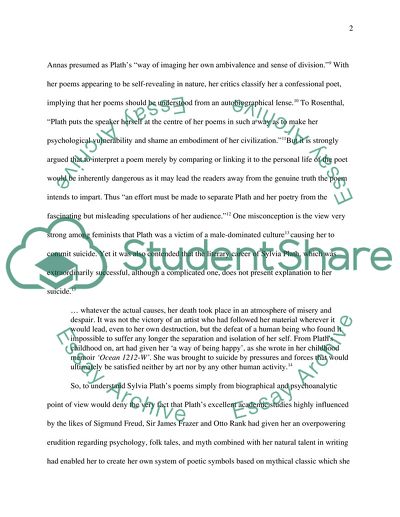Cite this document
(Elegy in Sylvia Plaths Poetry Assignment Example | Topics and Well Written Essays - 2500 words, n.d.)
Elegy in Sylvia Plaths Poetry Assignment Example | Topics and Well Written Essays - 2500 words. Retrieved from https://studentshare.org/literature/1728240-poetry-essay
Elegy in Sylvia Plaths Poetry Assignment Example | Topics and Well Written Essays - 2500 words. Retrieved from https://studentshare.org/literature/1728240-poetry-essay
(Elegy in Sylvia Plaths Poetry Assignment Example | Topics and Well Written Essays - 2500 Words)
Elegy in Sylvia Plaths Poetry Assignment Example | Topics and Well Written Essays - 2500 Words. https://studentshare.org/literature/1728240-poetry-essay.
Elegy in Sylvia Plaths Poetry Assignment Example | Topics and Well Written Essays - 2500 Words. https://studentshare.org/literature/1728240-poetry-essay.
“Elegy in Sylvia Plaths Poetry Assignment Example | Topics and Well Written Essays - 2500 Words”, n.d. https://studentshare.org/literature/1728240-poetry-essay.


